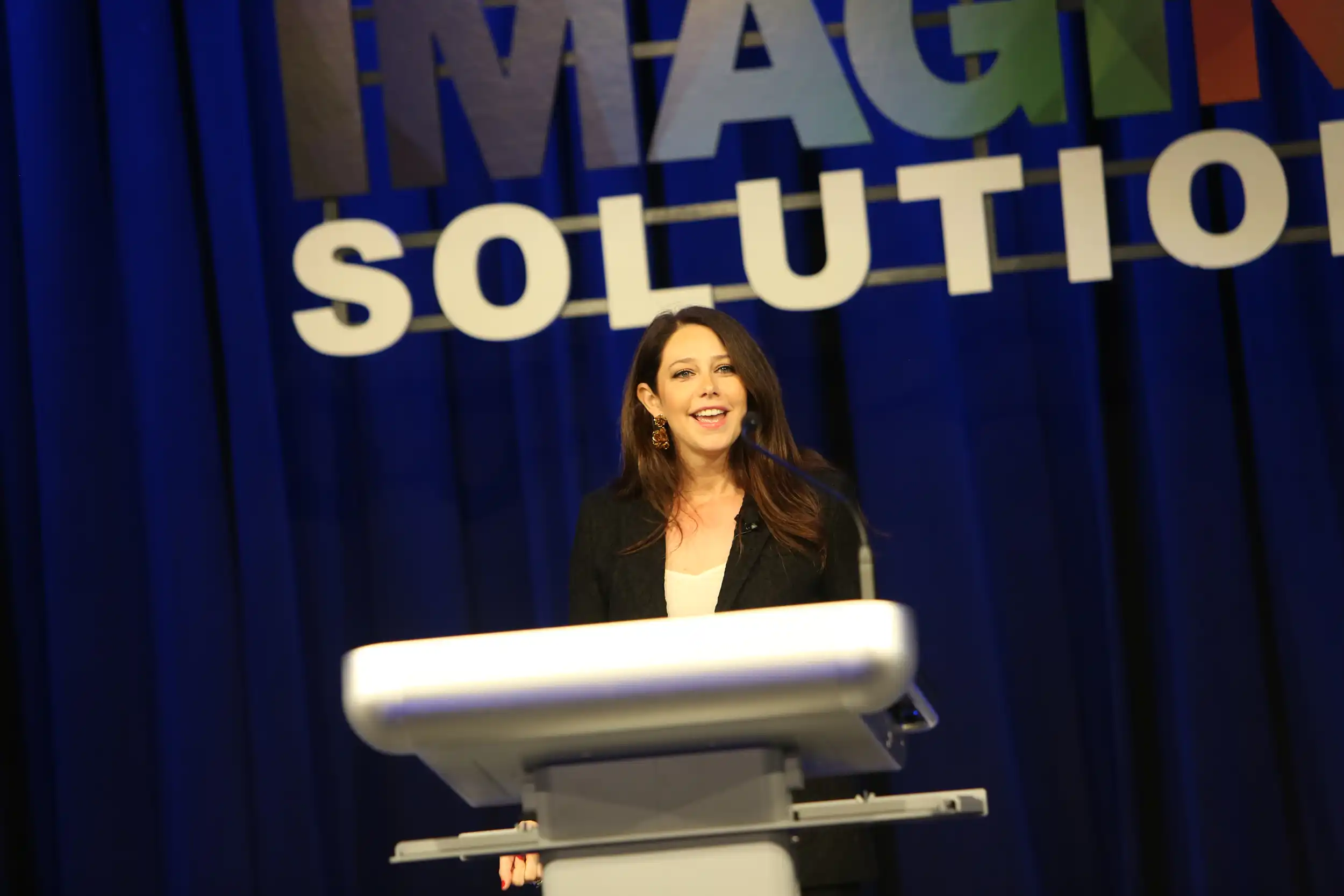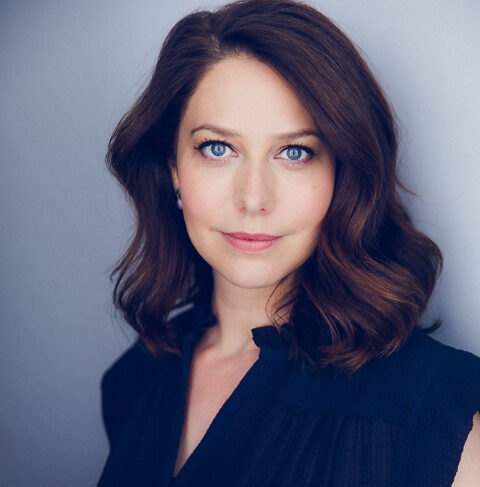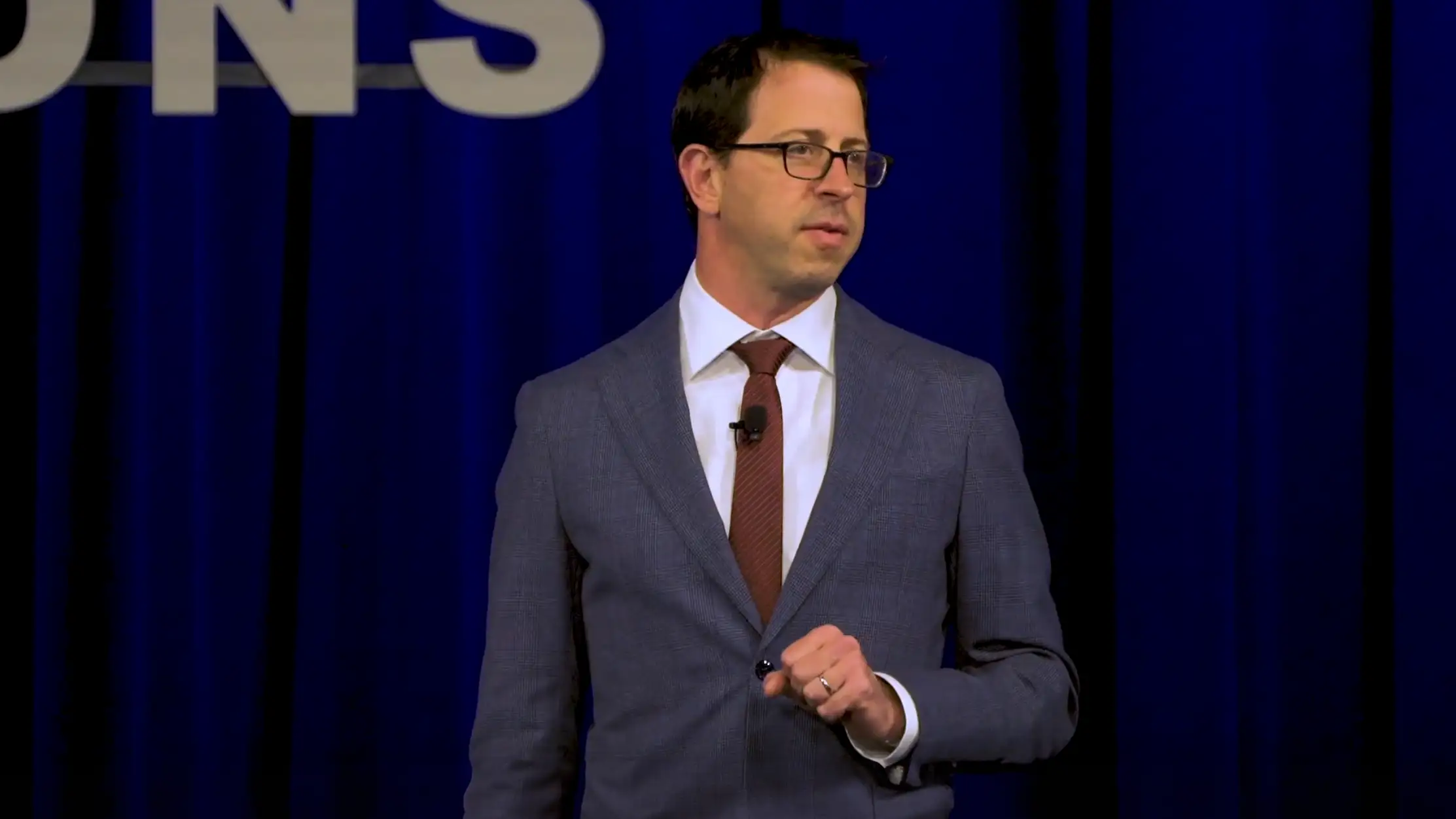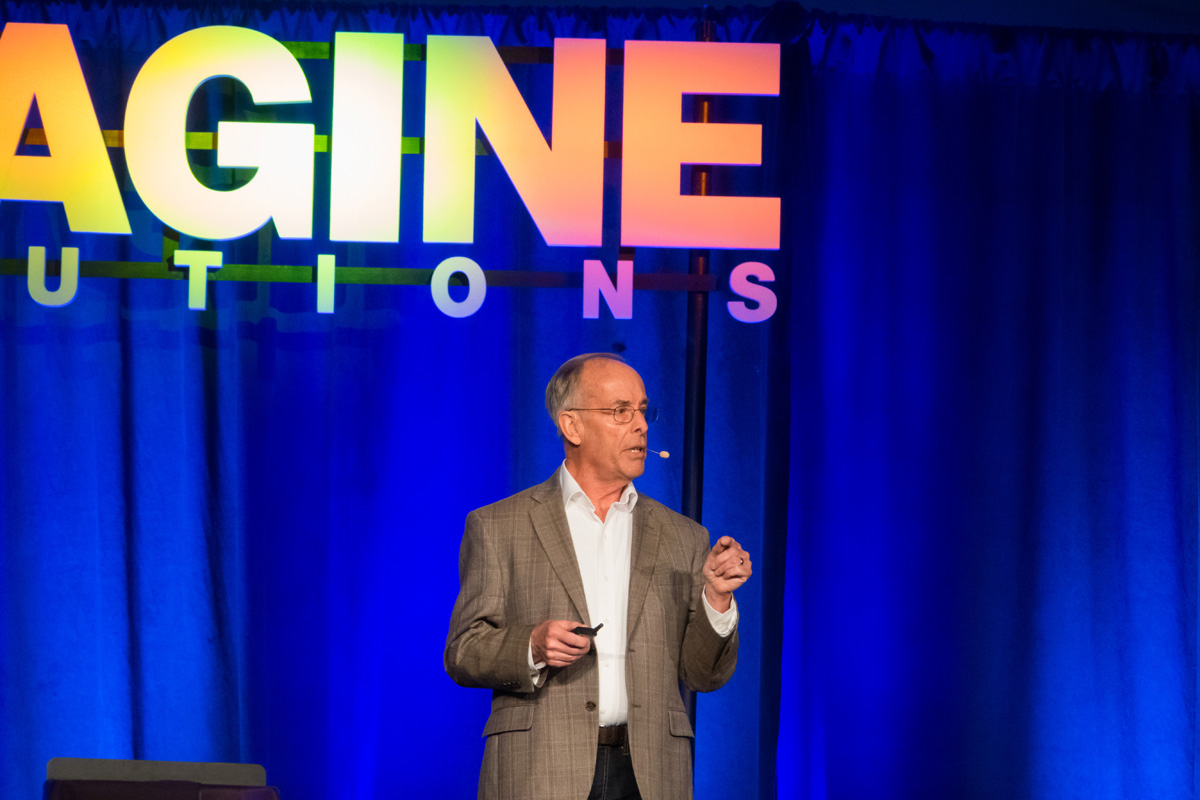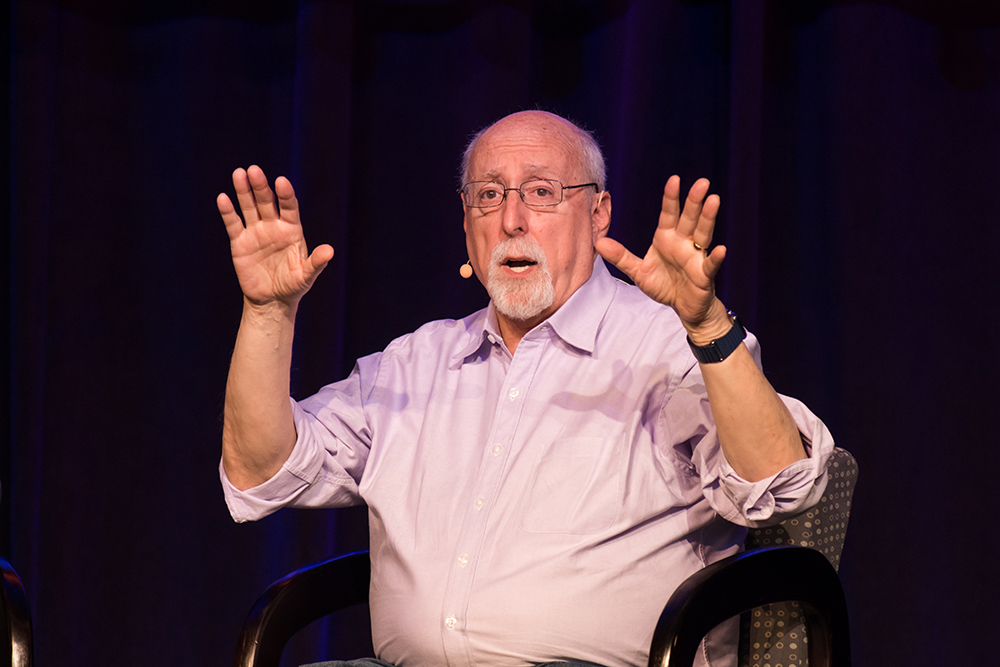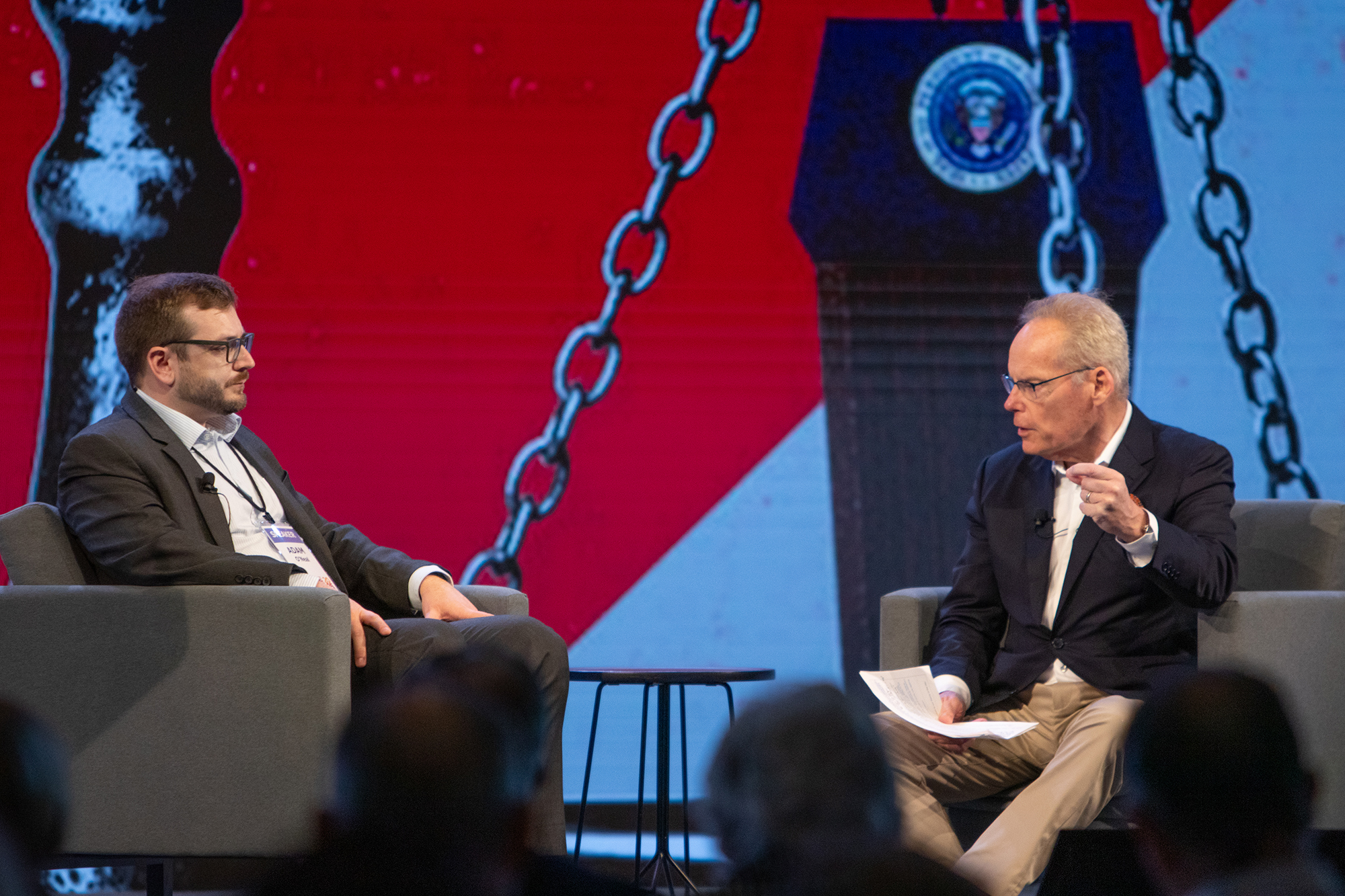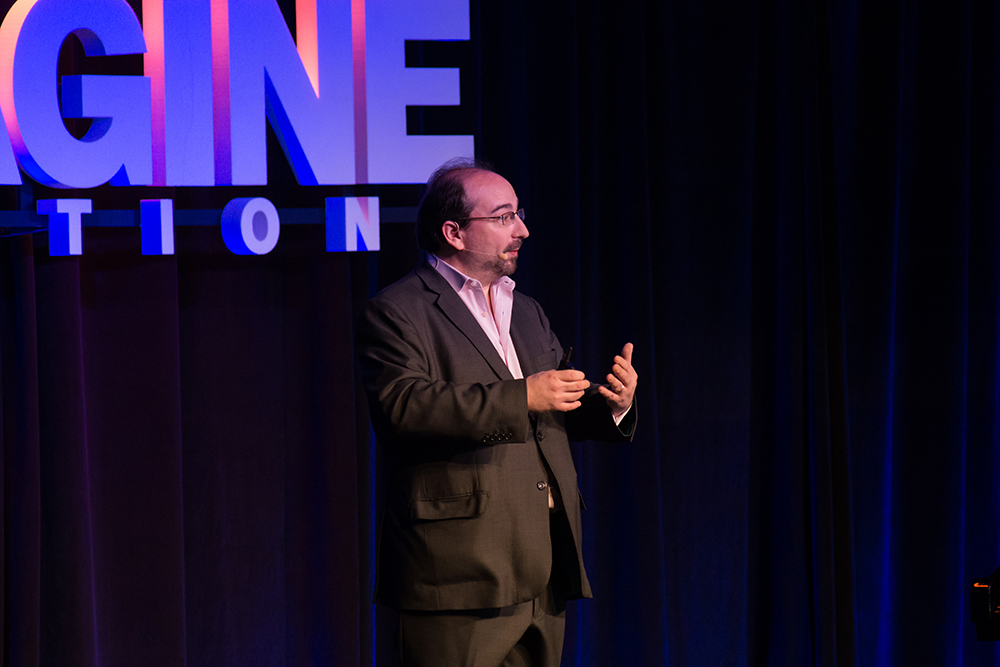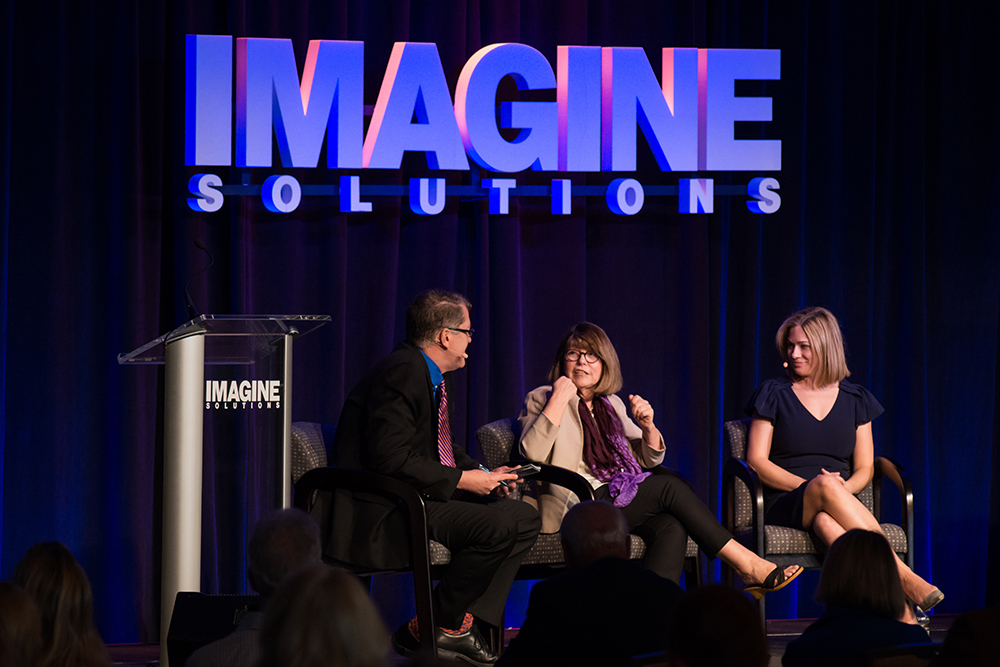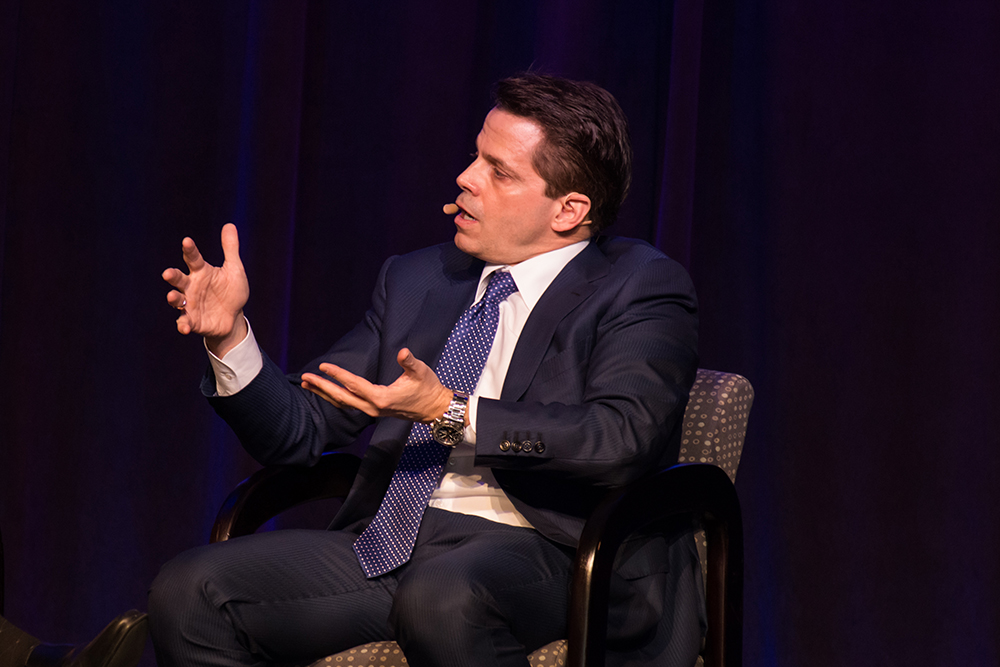America’s Debate Series – a solution to the extreme polarization
00.00
foreign hi everybody good afternoon I am so grateful to be here talking about how to imagine solutions to all of these problems that we're talking about their challenges they're I don't believe they're insurmountable I come to this conversation from a place of real optimism and when Randy first talked to me about you know how do we how do we get it to talk about civil discourse I thought well I'm going to imagine a solution that's been around for thousands of years but it's kind of lost its way
01.01
so I want to start by saying debate is the solution to America's problems sounds kind of counter-intuitive right now because that's not the I think you're used to a kind of debate we see a lot of debates we hear a lot about debates think about our presidential debates which are kind of an embarrassment they don't really help us learn about new policies they don't really help us learn about platforms they're not really about substance or think about debates you typically see on the news or on talk shows talking over each other yelling nobody wants that and that's not helping but real debate the way that a structured conversation actually enforces listening learning tolerance for the other side engaging somebody you disagree with without becoming disagreeable I think that's a vision
02.01
for how we need to move forward across all of the various problems that we've been talking about today so debates the solution to America's problems but how do we get here why is this a solution so I think it comes down to right now one unifying problem across every single industry polarization and it's not just polarization it's because we're fighting polarization has led us to the Resolute is leading us to just fight with one another on almost everything everything's been so hyper politicized we're entrenched in our partisan ideology and tribalism and Echo Chambers and filter bubbles and so this level of polarization is now creating enemies amongst friends between colleagues
03.00
it's complicating being collaborative and developing Partnerships in the workplace it's even dividing communities and school boards and classrooms and your kitchen table so as cute as this is we have some pretty big problems to solve let's talk about some divides in America where the debate has just become pretty unconstructive talking about social justice climate change solutions for how we're going to secure a world for our children gun control Public Safety inequality homelessness and poverty and of course the pandemic seems to have divided us further and This Global pandemic which could have been a catalyst to bring us
04.00
together to imagine Solutions ended up politicizing every single fact that we heard about and that's now become a dirty word fact and same thing with the truth but there's a reason for that it's very well documented it's in practically every Gallup pole and Pew poll and Edelman study and research organization and it's this the trust in American institutions has hit an all-time low and the least trusted amongst Americans are the federal government Congress mainstream media the Supreme Court big business and our criminal justice system so if Americans don't feel like they can trust the information they get from the leaders delivering it what ends up happening to society
05.03
we lose the ability to collaborate we lose the ability to imagine Solutions and we can't work together and this is why democracy doesn't function in such a polarized Society so I'm Clea I'm the CEO of Intelligence Squared U.S we're the only non-partisan media organization out there curating debates that bring both sides together to really understand the complexity of these issues that are ahead of us and restore some Civility and respect to our national conversation here's one of our debates we did this earlier in the year this is a debate on climate change a live audience of 4 000 tuned into this uh we're actually live in Richmond Virginia and the the question at hand was can
06.00
humans adapt to climate change politicizing question but it's all about Solutions how can we adapt or are we at a a moment in time where we have to go into emergency action and mitigate adapt adaptation versus mitigation so this sort of debate is framed and structured in a completely different way than Americans are used to seeing starting with opening remarks that are uninterrupted presented by both sides a point Counterpoint that's moderated in a way that creates a lot of fairness equal time but also holds both sides accountable for the facts and evidence and proof that they point out there because right now if you don't have a dialogue between two sides that disagree you don't learn anything
07.00
but you can't actually call somebody else's research out in real time and that's something that's the scientific method and I'd say that's the search for truth truth is now a dirty word truth has even been politicized and that's a scary thought because we do have to have a shared set of facts and a shared truth in order for our society to function properly so here we have the Thinker made up of fractures but of both sides of a combination of ideas in the search of the truth and to me that's what debate's really about because it's definitely not best but this is what we're taught and this is what our kids are taught and this is the national model that's been you know out there for a while of what a debate is a clown car of politicians yelling at each other
08.00
and making our Public Square seem like we should tolerate this sort of rhetoric and behavior it is not what real debate is all about so I'm personally invested in this oops I was born in Wisconsin I grew up in Arizona so I'm a Packers fan uh used to used to extremes actually and I moved to New York City 20 years ago to work in Media journalism and this kind of stuff and when I got to New York people were fascinated with Arizona you know it was like the Wild West it's how how great how big is the Grand Canyon really and you know can you can you really fry an egg on the sidewalk do scorpions glow in the dark you know Arizona was a place of wonder in 2012 Gabby Giffords was shot in
09.02
Arizona it's now become the Hub of election denial in this country and this is our national ambassador the Q Anon Shaman also hails from Arizona no one should be proud of this I certainly am not but it really drives me to wonder and investigate how we can bring both sides together when we have such extreme partisan divides at this level of amplification not an easy problem to fix because it starts here this is a media bias chart this is tracking all of the different media outlets in the U.S and ranks them by most extreme on the left to most extreme on the right and as you can see under that green dotted line right there which is the line for mostly analysis or even a mix of facts and Reporting everything below
10.01
that is analysis that's highly variable in reliability it's opinion or it just goes straight into propaganda it's using persuasive techniques and just crosses straight into marketing that's about two-thirds of media Outlets so if you consider we have an erosion of trust at a historic level and then this is our media landscape we have a big problem to solve and not to be Debbie Downer but it kind of gets worse when you look at cable news which is now really people have divided into I'm on one side or the other only hearing one side of the story you can curate your social media feed so you never have to hear another perspective I think 10 percent of kids are now getting their news on tick tock
11.00
and these algorithms create the same reverberating effect and they reinforce our biases they don't introduce us to another point of view and this is why we look at each other as enemies it's a breakdown in Social fabric and last but not least we're leading the world it seems America's superpower these days is partisanship far outranking every other country and continent on the globe in political polarization source of this is the New York Times based on Gallup research so if you consider all of these effects how do you bring people back together in the spirit of being civil of being respectful about Divergent points of view especially in such a diverse democracy as America
12.00
which is uniquely challenged by this problem we think it's with debate so I've produced around 200 Public Policy debates that really go deep and ask some serious questions and I jotted down a few here that I thought that were particularly pertinent to this audience as of today right in the talks that we heard earlier is the fda's caution hazardous to our health we heard this amazing story of curing blindness it took 15 years to get through regulations is there a better way debate is a great vehicle for bringing policy makers and scientists together to have that conversation or should we use Gene editing to build better babies to what extent and what are the ethical queries there what about education should we forgive student debt it's pretty divided issue what about the s.a.t something we've used to measure getting into college now for years schools are
13.02
getting rid of it and what about foreign policy it's a lot of concern about China the future of China and America and if there really really is a war is Taiwan defensible or not there are serious questions that right now are being treated like sensationalized headlines instead of the deeply challenging worthy thoughtful sorts of debates they need to be treated as in this country and in a couple weeks we're going to have one is America too obsessed with race how do we have that conversation in a civil way I'm going to prove we can do it we've brought over 600 amazing thought leaders journalists best-selling authors policy makers you know to the stage over the years
14.00
and we've developed different formats to have different kinds of conversations I'll grant you that not everything is a debate but everything's debating and we have different formats to think about how to invite these two sides together so we just launched a weekly program last August on NPR and uh good on you Naples because wgcu here in the area carries this program now as does a lot of Florida actually rolling out around the country so that we're able to kind of build understanding and empathy for our opposition and what we perceive as that what I'm saying isn't new are ancients used debate to build democracy they vigorously compared and contrasted ideas in order to arrive at what were the best Solutions available at the time with the information that we had to
15.00
build Western Civilization as we know it how have we lost the ability to use debate in the Public Square in a positive way when I saw Ben's downward spiral versus the idea of possibilities Socrates and Plato represent that open you know ideas of possibilities region and I was really inspired by that and I think there's a lot of Truth there truth what it comes down to is debate is about the exchange of ideas we can't be on a one-way Street anymore it's not working it's really hurting us but here's based on all of the debates that we've done and tracking our audience which we've done when they walk in the door before they hear a debate and when they leave after they've heard all the arguments something pretty magical happens in that hour hearing both sides often for most people
16.02
for the first time with credible insights and expert delivery has this amazing effect 32 percent of people actually change their minds after attending a debate it's an average number that's an extraordinary movement of the dial from closed-minded to open-minded it may even have reinforced your existing opinion but you learned something from the other side and you also got some empathetic reasoning with why they have that opinion and new evidence in facts and data that are going to help us all get back to the truth and my favorite example of changing Minds for our science audience here is Bill Nye the Science Guy
17.02
who attended a debate that we produced on genetically modified food just asking the question genetically modify food and Bill was was not convinced by the arguments he heard from the scientists in favor of GMOs that was defended by a guy named Rob Fraley who is the CTO of Monsanto so to have Monsanto come up in the Public Square and defend GMOs is really powerful bills in the audience and stands up and challenges him because there's an audience participation part of real debate and says how can you stand by this technology it's not it's not old enough you don't have enough data you don't have the science to tell me this is safe and to rule this out for the globe Rob says we do what I've said is true come to my lab they spent time together bill went on a learning term a tour of various facilities including spending a
18.00
lot of time in Monsanto and two weeks later he went on the record saying my mind's been changed GMOs are scalable they're safe and they're going to help us feed millions of people they could potentially solve rural poverty and I got to get behind this technology as a scientist That's The Power of real debate and if we can change Bill nye's mind imagine if we could scale this and bring this Civility and respect back to the Public Square right now we're collab we've collaborated with IBM on the first AI that can debate a human being the idea is to be able to remove bias from the arguments that are made on both sides really ambitious as everybody is now talking about chat GPT and already how biased this new technology is and is it going to do more harm than
19.01
good so project debater here this was the first debate between an AI and a human it's about 15 minutes long you can find it on our website and it really is a fascinating study in debate the art of persuasion the art of selecting sources and presenting them and if you're concerned I can tell you the human one but it's not long before we're using technology like this to help us make decisions to help us see two sides and be able to actually inform and educate based on technology like this but it has to be developed the right way we're collaborating right now with psychologists scientists technologists people in the government to understand how we could bridge this divide again with balanced information with an emphasis on civility a return to respect for contrary
20.02
opinions and understanding that just because we disagree we don't have to hate each other we want to build more threads like you see here between the two sides debate able to change the minds of a third of the people that experience it when done right is a pretty interesting model which brings me to next year because we're coming up on 2024 elections we have the presidential debates in our sites and wouldn't it be amazing if you saw the two candidates who were going to be representing all of us on the global stage in a debate grounded in facts and reason analysis bridge building between the two sides focused on substance actually having a real debate in the
21.03
spirit of our ancients that's a nod to democracy well I think it's possible I think we can do it and I'd love for you to join me on this mission to bring more debate the right kind of debate to Americans but get it in our classrooms get it back on college campuses where we need intellectual diversity in order to actually solve some of these problems and take it up to the highest levels so that we can be really proud of the kind of civil discourse model we're presenting to the rest of the world so with that thank you very much thank you

